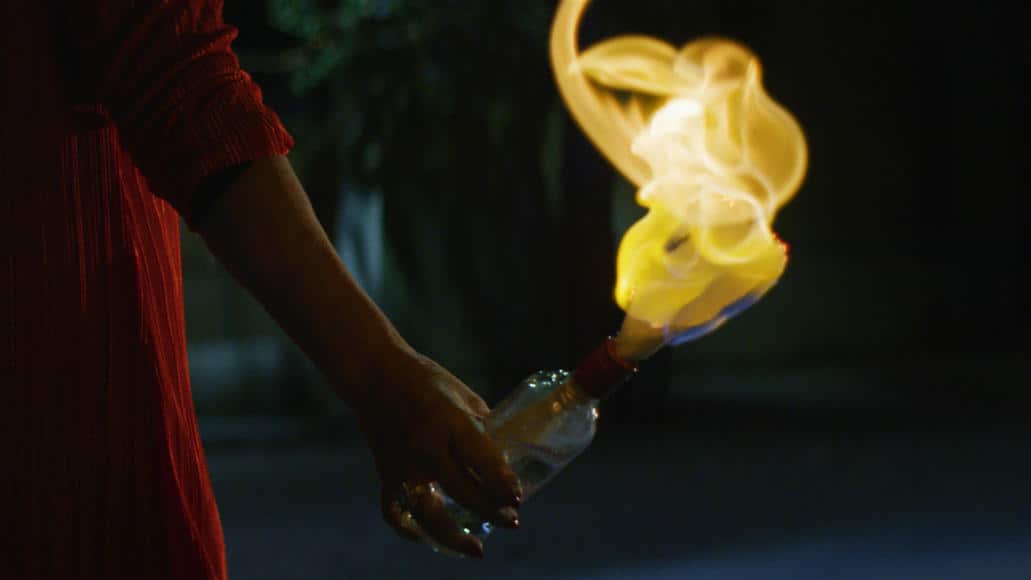As I realized after having an interview with him a couple of weeks ago, before becoming famous as the protagonist of films like “A Sun” ,The Falls” and “Leave Me Alone” Chen Yi-wen also had a very interesting career as a director, which, stopped, though, in 2006 with just five titles. As such, I took it upon myself to check all of them, with “A Chance to Die”, a film ordered by Sino-Japanese producers, and the one with the lowest score on IMDB for some reason, being the first.
The intro is quite indicative of the rest of the movie, with violence, sex and rapid pace giving the tone, before we stumble upon a team of maverick criminals intruding on a drug deal in Taipei, stealing millons of cash and leaving two Japanese dead. While triad bosses become fret over the situation, and their inner antagonism becomes more and more intense, the Japanese, including Kanako, the girlfriend of one of the deceased, initially take shelter, but eventually decide to go on the warpath. The girl ends up being taken care of by one of the Triad members, Hao, whose girlfriend, Pei, though, is extremely jealous, to the point that she mentions the fact to his gang leaders, essentially initiating the violence that ensues next, and forcing Mizuno to train in gun shooting in order to protect herself and exact revenge. A bit later, she even sleeps with one of Hao's higher ups, Brother Ming, making things even worse.
Chen Yi-wen directs a crime movie in the style of the American b-movies of the category, with large part of the story existing just to service the plethora of violence and deaths, and the concept of the female vigilante, pointing directly towards this approach. As such, Chen Po-wen's editing results in a pace that is frequently frantic, while Tsai Cheng-tai's cinematography follows an approach that is occasionally noir, occasionally only focusing on the action. In that regard, the majority of the action scenes are quite impressive, occasionally bordering on exploitation, while violence seems to be everywhere, in a world where the term “dog-eat-dog” seems mild to describe.
Somewhere here is where Chen Yi-wen's impact on the movie becomes evident, since, between the constant action and many sex scenes, he manages to make a number of comments regarding the youths that star in the film, and particularly the way they found themselves lost in a society that seems quite eager to ostracize. As such, their actions, and the fact that they all belong to organized crime syndicates, becomes justified, to a point at least, while the violence they exercise frequently seems as a cry for help. The scene with the one who thinks he is invincible and tries to run through traffic is indicative of this approach. Furthermore, the fact that Kanako finds it impossible to communicate with anyone but her protector, adds to this overall sentiment of disconnect almost all characters feel, while also incorporating a sense of humor, particularly through her interactions with Pei.
Miki Mizuno is excellent in the role, with her transformation from a scared girl to a vigilante being one of the most entertaining aspects of the movie, while both director and cinematographer take care of highlighting her evident beauty whenever it is possible. Winnie Yu-Wen Ho as Pei is also quite fun to watch in her naive frustration and insecurity, also appearing in a number of sex scene that highlight her beauty. Tuan Chun-hao as Hao is convincing as the protector turned victim and Kao Ming-chun as Ming steals the show in the moment when his patience finally ends, in another rather entertaining aspect of the movie.
Lastly, the ending is also impressive, both because it presents something of the nihilism Kitano's gangster films entailed and also for the impressive ending track.
“A Chance to Die” is not high art, but as far as action crime “b-movies” go, you will not find many better, also because Chen managed to incorporate the aforementioned social comments.
















